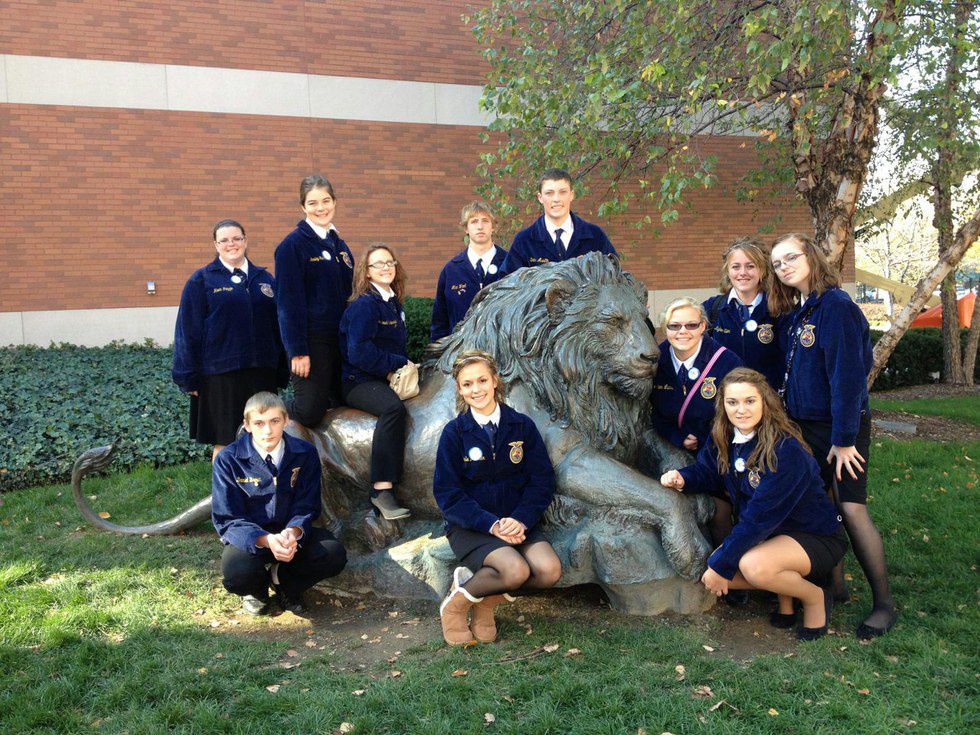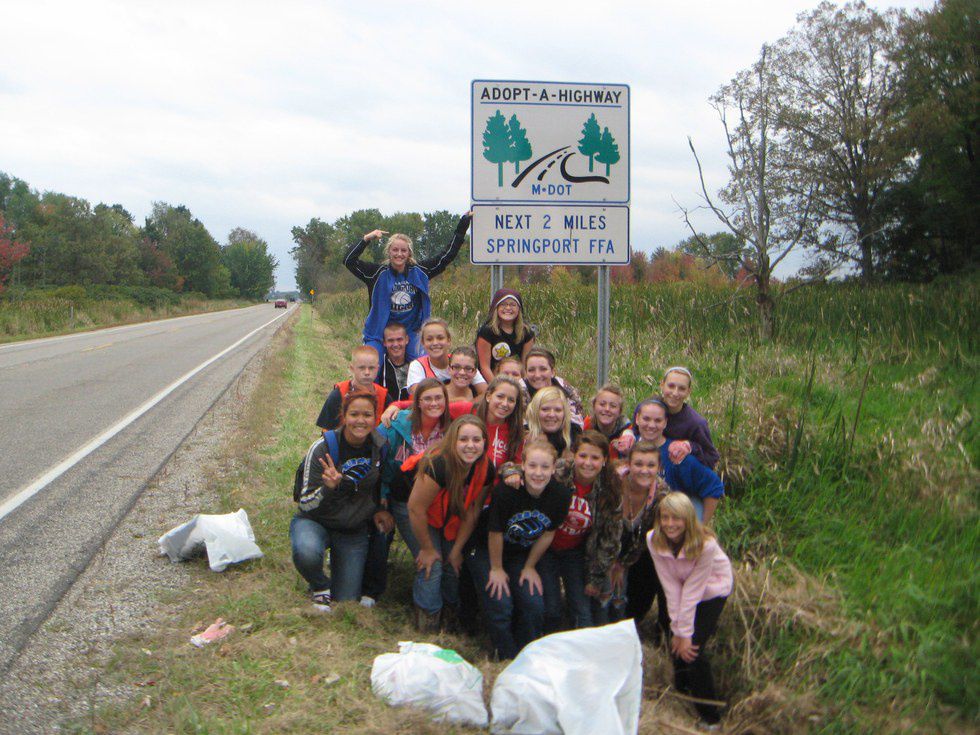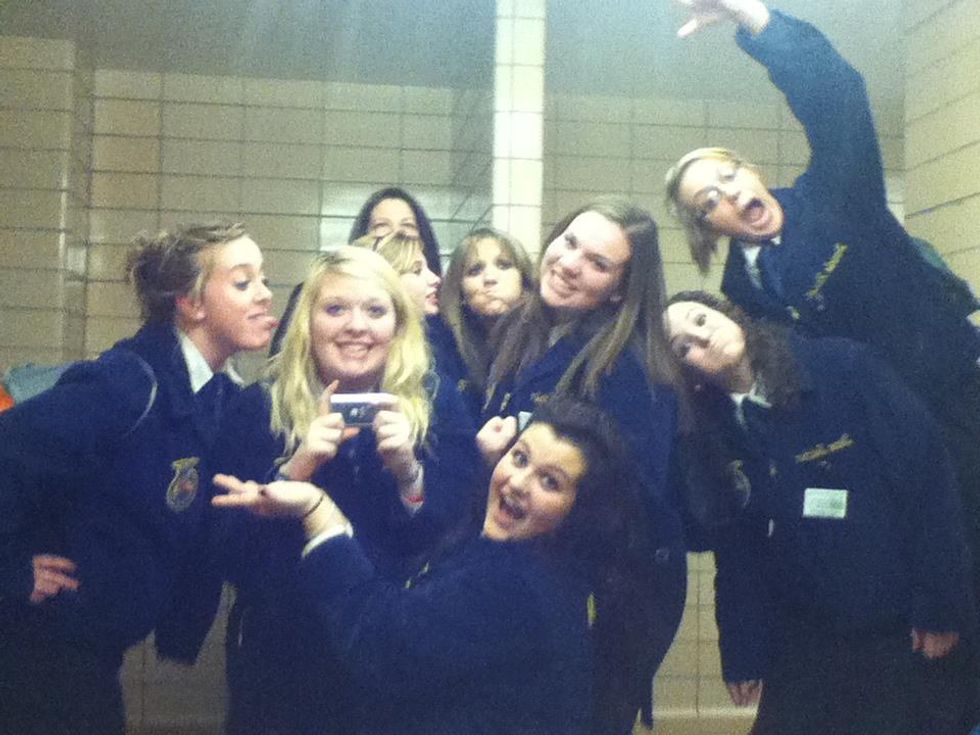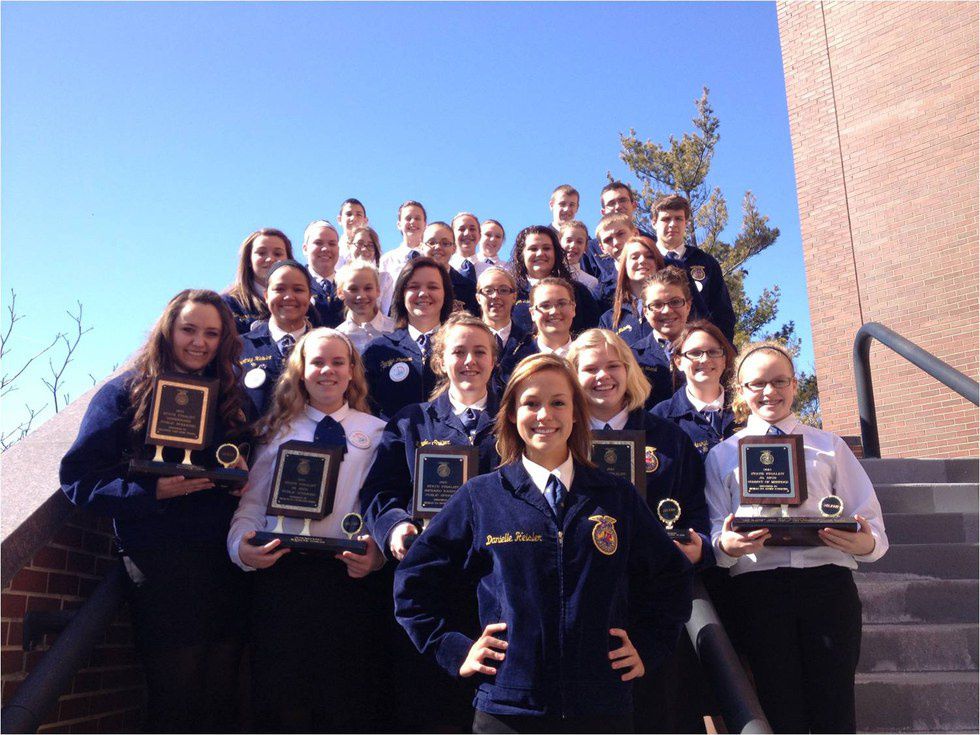As is the case in many Midwestern farm towns, my high school's largest organization was the FFA. While the acronym previously stood for "Future Farmers of America," the name was changed to simply the National FFA Organization in 1988. To fellow members and myself, the change is perfectly suited. While it is based in agriculture, FFA is so much more than farming. In my four years as an FFA member, I learned invaluable leadership and communication skills. The personal growth I experienced made those four short years some of the most influential in my life. Recently, an article has been published by PETA slamming the FFA. Its members are portrayed as one-dimensional, animal killing monsters. Anyone who has ever been involved with FFA has probably seen it and is just as disgusted as I am. I will not share their article - doing so only distributes their hateful words even further. This list of lessons that the FFA has taught me will never be long enough, but hopefully it will serve as a response.
1. Public Speaking
When I first started in FFA as a shy ninth grader, I wasn't exactly keen on the idea of getting up and talking in front of people. Shortly after joining, I participated in a freshman public speaking competition and was hooked. By the end of my senior year, I had no problem standing in front of crowds of any size and delivering memorized eight minute speeches. The value of this training is immeasurable, I wouldn't be the person I am today without it.
2. Leadership

3. Problem Solving
Murphy's Law states that anything that can go wrong, will go wrong. In our busy chapter, it seemed like a new crisis emerged almost every day. From member disputes to budget issues, we were never short on problems. But every problem that emerged came with several solutions. Together we learned how to find the best fitting solution quickly and calmly, a skill that never fails to help me wherever I go.
4. Time Management
I mentioned before that my chapter was - and still is - busy. That would be an understatement. With several events to plan every month, we never had much down time. Day to day operations for the chapter include maintaining the greenhouse, taking care of animals (our school has its very own flock of sheep), filling out paperwork, planning the next event, record keeping, just to name a few. Handling my duties to the chapter, on top of regular school work, required me to learn how to manage my time wisely.
5. How to Properly Run Meetings
Since chapters are run by students, meetings are an essential part of doing business. When I became an officer, I became well versed in proper parliamentary procedure. Chapter meetings were fast-paced and efficient because we followed procedural rules. I also honed my skills in this area by competing in competitions for parliamentary procedure at the district, regional, and state level. Many people have no idea how detailed this is, but I'm beyond grateful I had the opportunity to learn it.
6. Teamwork
In FFA I was on several different teams. Officer teams, competition teams, and committees - the list could go on for years. Integral to these, being a part of a successful team was figuring out how to get seven, or ten, or twenty people to all work together in harmony. It's a subtle art form that develops from working with your team after quite a bit of practice.
7. Conflict Resolution
With all of these teams, it goes without saying that conflict is inevitable. One thing FFA taught me was how to remove my own personal feelings from the situation and think rationally to work toward the greater good of the team. It requires communicating openly and knowing your teammates. Conflict resolution is never easy, but always worth it in the end.
8. How to Write With in My Own Voice
By participating in several public speaking contests and becoming a chapter officer, I was required to write quite a few speeches during my time in the FFA. Draft after draft, I slowly learned my own personal writing style by also working on my speaking style. All writers must write in their own unique voice, and I owe the development of my "writing voice" to the FFA. The growth I experienced was exponential. I am so grateful for this lesson, since it allows me to write at this platform today.
9. Event Planning
Each month brought several different events to our chapter and it falls on the chapter members, especially the officers, to plan every detail. Our events include new member initiations, end of the year banquets, canoe trips, fundraisers, auctions, parent informational presentations, and career fairs. We planned social outings and trips to national and state FFA conventions, along with countless community service events. My FFA background definitely gives me an edge when it comes to my future career.
10. The Importance of Networking
Sometimes, it's not really what you know, but who you know. Through my experiences with the FFA, I got to meet industry professionals, members from all over the country, officials from businesses and colleges, and even politicians. It helped instill in me the importance of networking, which I still work on to this day.
11. How to Prioritize
In order to get work done efficiently when there are a dozen items on your to-do list, prioritizing is essential. Knowing where to start is sometimes the hardest part, so knowing your priorities is incredibly important. Just like all of the other items on the list, the skills I learned from my lessons in FFA are still practical for me today.
12. The Value of Hard Work
It sounds cliche, but hard working people are immeasurably valuable. While most of the time my lessons of hard work in FFA didn't involve the traditional "dirty work" you'd expect, there is nothing worse than being ankles-deep in pig manure when only half of your group wants to help shovel. Or trying to set up an event for 200 people with most of your team on their phones. This lesson, like the others, is also eternal.
13. Balancing Work & Play
While we always worked hard, we always laughed hard too. Some of my best high school memories come from FFA, along with some of the best inside jokes in the existence of the universe. We knew when we had to work hard, but we also recognized times to relax and let loose. This balance is essential to pretty much anything in life.
14. The Value of Agriculture
You may have noticed that the other items on my list don't seem to have anything to do with farming or agriculture. Well, you're wrong. Or kind of right. Half-wrong, I guess. The point I'm trying to make is that the agricultural industry, much like the items on this list, is vast and varied. It isn't just growing crops and milking cows. It's about where your food comes from, the changes it goes through, and how it gets to your plate. It's about studying natural resources and figuring out how to feed the ever-growing world population. There are so many more occupations in agriculture than just farming (even though that is an important one). Food scientists, botanists, chemists, biologists, agribusiness professionals, agricultural & natural resource lawyers, and veterinarians just name a few different fields involved in this dynamic industry. One of the most important parts of FFA is looking at the big picture, at all the cogs and wheels that go into food production. Without agriculture, we don't exist. That is exactly what the FFA teaches members.


































